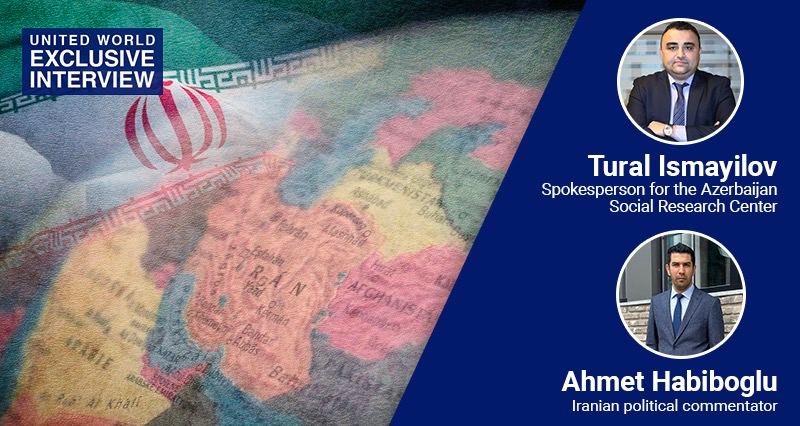Currently, the struggle over the corridor is more between Iran and Russia than between Azerbaijan and Armenia.
Currently, the struggle over the corridor is more between Iran and Russia than between Azerbaijan and Armenia.
By Tehran Tapdigov, Baku / Azerbaijan
The statement that ended the Second Karabakh War between Azerbaijan and Armenia contains several clauses. Azerbaijani President Ilham Aliyev, Armenian Prime Minister Nikol Pashinyan, and Russian leader Vladimir Putin signed a statement related to this on November 10, 2020. The 9th clause of the statement concerns the opening of transportation corridors.
This includes the Zangezur Corridor becoming operational, amidst the new realities in the region. However, despite the agreement being signed four years ago, the Zangezur Corridor has still not been opened.
Currently, the struggle over the corridor is more between Iran and Russia than between Azerbaijan and Armenia.
Russia supports the opening of the corridor, while Iran is firmly against it. Iran views the opening of the Zangezur Corridor as a violation of its “red line.” But why is Iran opposing this project?
We explored this issue with Tural Ismayilov, spokesperson for the Azerbaijan Social Research Center, and Iranian political commentator Ahmet Habiboglu.
Tural Ismayilov believes that Iran has serious misconceptions about the Zangezur Corridor.
“Iran presents implausible and baseless excuses to block the Zangezur Corridor. When areas like the Khudafarin Bridge, Minjivan, and other territories near the Iranian border were under occupation, Iran did not speak of any red lines. The November 10 statement obliges Armenia to take certain steps regarding the Zangezur Corridor. Azerbaijan’s access to Nakhchivan by land via other routes is not an action directed against Iran in any way.”
Ahmet Habiboglu argues that the Zangezur region, currently part of Armenia, is historically Azerbaijani territory. However, Azerbaijan does not claim this territory, which is why the corridor’s opening is necessary.
“The Zangezur region was once part of Azerbaijani lands, but after the collapse of the Russian Empire and the establishment of former Soviet Republics, border changes occurred in this region. During the Soviet Union’s reign, Zangezur was ceded to Armenia, cutting off the land connection between Azerbaijan and Nakhchivan. Many historians interpret these border changes as part of Soviet policies to reduce the influence of Azerbaijan and Türkiye in the region. After Azerbaijan regained its occupied territories following the Karabakh War, a ceasefire agreement was signed between Azerbaijan and Armenia in 2020, with Russia as a mediator. This agreement is one of the most important international legal documents that provides for the establishment of the Zangezur Corridor. According to Article 9 of the agreement, Armenia is obligated to provide Azerbaijan access to Nakhchivan via this corridor.”
Habiboglu further argues that the Zangezur Corridor will lead to economic growth for all countries in the region.
“The Zangezur Corridor is considered a vital route for the regional economy. This corridor provides a direct link between Azerbaijan and Türkiye, facilitating Azerbaijan’s access to international markets via Türkiye. Establishing this corridor strengthens regional transportation infrastructure and could contribute to the development of commercial relations between the Caucasus countries and Türkiye. Economic studies suggest that improving regional transportation networks leads to increased commercial interactions, lower transportation costs, and economic growth. For example, a study by the International Transport Forum shows that developing transit routes in the Caucasus could increase the region’s economic competitiveness and strengthen its role in global trade. From Türkiye’s perspective, this corridor offers direct access to Central Asia and its energy resources.”
Although Azerbaijan has no territorial claims over Zangezur, the corridor’s opening is crucial since Azerbaijan is the victorious party. Nikol Pashinyan signed a capitulation agreement to stop the war, which includes a clause about opening corridors.
“According to international law, countries have the right to develop international transportation routes through bilateral and multilateral agreements. International conventions, particularly those related to land and sea transportation, emphasize the right of countries to use transit corridors. In this context, the establishment of the Zangezur Corridor is considered a legitimate right for Azerbaijan and Türkiye based on international agreements and the 2020 ceasefire agreement. This issue can also be viewed under international law as a country’s right to access its separate regions through another country. Especially when such an agreement is achieved through diplomacy and multilateral negotiations.”
The corridor also unites the Turkic world, which is another concern for Iran.
“The Zangezur Corridor has significant security and geopolitical importance. One of the objectives of Azerbaijan and Türkiye in establishing this corridor is to strengthen strategic relations between the two countries and also to develop relations with Turkic-speaking countries in Central Asia. Geopolitical studies suggest that the development of transit and transportation routes in conflict-prone areas can help reduce political and military tensions and provide a necessary foundation for diplomatic and economic interactions. For example, studies by the Caucasus Strategic Research Center suggest that the establishment of transit corridors can help resolve border disputes and reduce the risk of armed conflict.”
















Leave a Reply